You are a father. Congrats!
Now you rank as one of the most influential people on the planet. But that also means you are entrusted with some serious responsibilities.
I have already finished my training in The World Needs A Father. It was an eye-opening experience. Among the most crucial lessons I learned was that our presence as dads affects not only the lives of our children but the entire world.
Based on research,
- 63% of youth suicides are from fatherless homes — 5 times the average.
- 90% of all homeless and runaway children are from fatherless homes — 32 times the average.
- 85% of all children who show behavior disorders come from fatherless homes — 20 times the average.
- 80% of rapists with anger problems come from fatherless homes –14 times the average.
- 71% of all high school dropouts come from fatherless homes — 9 times the average.
- 75% of all adolescent patients in chemical abuse centers come from fatherless homes — 10 times the average.
- 85% of all youths in prison come from fatherless homes — 20 times the average.
You can check the rest of the report here: Rochester Area Fatherhood Network — Research and Statistics.
A world without dads has a devastating impact. Almost every major disorder has been linked to the absence of fathers. Violence, teen pregnancy, suicide, drug use, and alcohol abuse are all more strongly correlated with fatherlessness than any other factors.
This post does not, by any means, downplay the role of a mother. Both parents have their unique effects on the lives of their children. But there are just things that only a father can provide for his kids.
Here are the ten responsibilities of a father I learned in training:
- Being present in the lives of his children.
- Loving his wife.
- Living a life his children can emulate.
- Establishing moral standards.
- Being the life coach of his kids.
- Creating a safe environment for his children.
- Taking care of himself.
- Apologizing to his children.
- Forgiving the grandparents of his children.
- Learning continuously.
1. Being Present In The Lives Of His Children
This is the bread and butter of all responsibilities. We already know what happens when a father is absent from a child’s life. But besides preventing bad behavior, being present also enhances those kids in many ways.
In the study conducted by Father Involvement Research Alliance (FIRA), father involvement leads to better physical, emotional, social, cognitive, and spiritual well-being.
The Effects of Father involvement
Physical
- Children who live with their fathers are more likely to develop fewer health-related problems.
- Married parents living together are less likely to have their child diagnosed with asthma.
- Obese children are less likely to live in a father-present home.
Emotional
- Children with present fathers display a greater tolerance and ability to handle stressful situations.
- Children are generally happier.
- Children are satisfied with their lives overall, and experience less depression.
Social
- Father involvement is favorably correlated with social maturity and competence.
- Children have positive peer relations.
- They are favored with having a successful marriage when they grow up.
Cognitive
- Children with fathers who are involved are 40% less likely to repeat a grade in school.
- They are more likely to get A’s in school.
- They generally enjoy school and engage in extracurricular activities.
Spiritual
- Children up to 6 years old derive the image of God from their own fathers.
- A loving and present father portrays a loving and present God.
- Children are likely to share the same religion with their fathers.
Download the full research here: The Effects Of Father Involvement.
Additional resources: 10 key findings of the religious lives of U.S. teens and their parents.
Father Impact Years

We technically only have ten years to make an impact on the lives of our children. It is easy to miss this window of opportunity if we let ourselves get distracted by our own interests in life. We could wake up one day asking ourselves, “Why have I missed it?”
Let us invest in our children today.
A father’s involvement starts at conception. Read: We’re Pregnant! But We’re Diagnosed with Mega Yolk-Sac.

2. Loving His Wife
Being involved in the lives of our children also means loving our wives. But we all know it is easier said than done for most of us.
- Global divorce rates increased after 1970.
- Single parenting is common, and in many countries it has increased in recent decades.
- Substantial increase of children born outside of marriage.
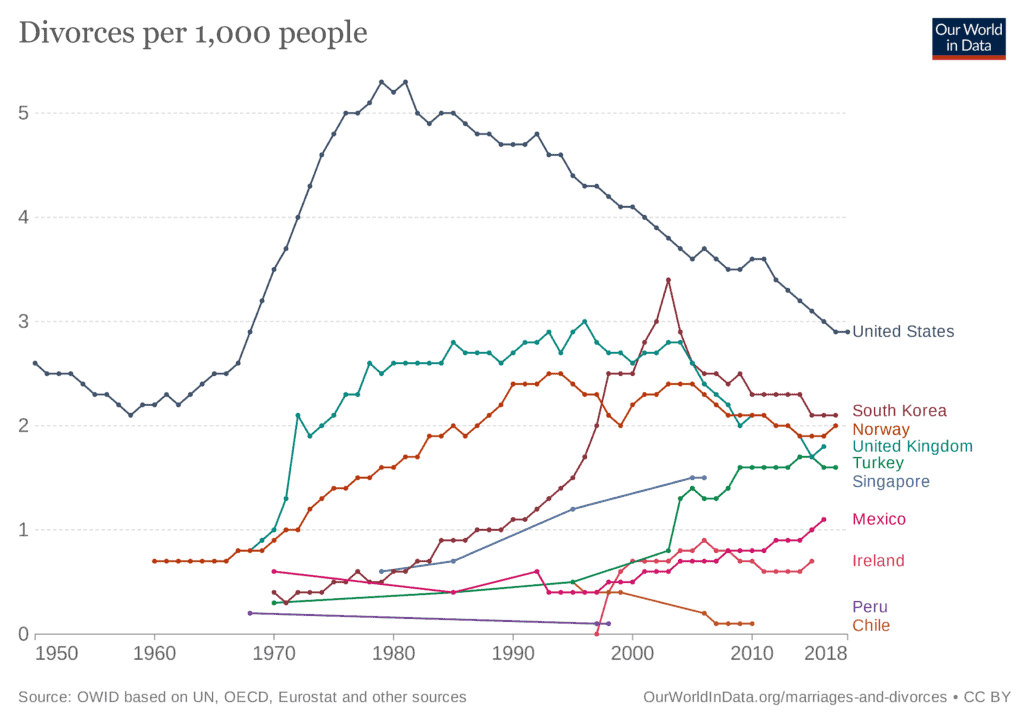


It appears fewer and fewer people are taking marriage seriously, which leaves children today feeling angry and depressed.
You are already an awesome dad if you are present in the lives of your kids. But to take it a notch higher, you have to give them a happy family — and the key is to have a committed marriage.
Mommy Comes First
How we love the mother of our children is the primary relationship our kids observe. Loving our wives well will give them confidence and stability. They will have this sense of security that no matter what happens, dad will never leave mom, and they will find a way to settle their conflicts. It will teach them the value of commitment, respect, and support for one another.
Having an all-in marriage is one of, if not, the greatest gifts we can give our children. We, too, need our wives for us to become better dads. Yet, despite what was said, children should not be the driving force behind our marriages.
We must love our wives first, and whatever benefit it translates to our kids is only a natural by-product.
One way we can show our commitment to marriage is through leave and cleave.
3. Living A Life His Children Can Emulate
Men are troublemakers.
According to a report by FathersForLife.org, men commit…
- 90% of major crimes.
- Nearly 100% of rapes.
- 95% of burglaries.
- 91% of offenses against the family.
- 94% of drunk drivers.
And what mostly fuels these behaviors is our conventional understanding of manhood.
The Caricature Of A Man
Here is how our culture depicts what a man is supposed to be:
His POSITION is his IDENTITY.
A man is what he does, not who he is.
He must EARN his VALUE.
He must be smarter, faster, and richer than others.
His ultimate GOAL is SUCCESS.
Other matters are mere distractions or stepping stones — which may include marriage, children, and other meaningful relationships.
His DESIRE is POWER.
Wealth and influence.
Question: Do you see yourself in this picture?
Follow-up question: Is this the person you want your children to be when they grow up?
Our children will become what we are — so we should become what we want them to be. To do this, we must replace the culture-based caricature of a man with what we think a real man should be.
The Real Man
I wish I could tell you in black and white what real manhood looks like. Even if we talk about it for days, we will not come to a conclusion. We all have our own versions of what a real man should be. As for me, I will be happy to see my kids grow up as people who:
- Are GOD-CENTERED.
- Live with INTEGRITY.
- Do things with EXCELLENCE.
- Take RESPONSIBILITY.
- THINK for themselves.
What about you?
We are called to be people of conviction, not conformity; of moral nobility, not social respectability. We are commanded to live differently and according to a higher loyalty.
Martin Luther King Jr.

4. Establishing Moral Standards
We won’t be around forever. One day, we will be leaving our children to live on their own. This is the reason why one of our responsibilities as fathers is to establish a moral standard. It is a way for us to continue to “be involved” in their lives even if we no longer exist in this world.
To put it simply, a moral standard is the “backbone” for how we live our lives. It is the line separating what is right from what is wrong. It is the meaning behind why we do what we do.
- Why does dad love mom?
- Why does dad discipline me?
- Why does dad go to work?
- Why does dad help the poor?
- Why does dad pray?
Setting a high moral standard for ourselves and our families is the most profitable inheritance we as fathers can give to our children.
We all know one day our kids will have to face various challenges head-on. A solid moral standard will help shape their decisions about their relationships, careers, and lives in general. It will give them the best fighting chance of putting themselves and their future families on the right path.
Pre-requisite: Humilty
Establishing a moral standard requires humility. We have to let our children understand that while we are the leaders of the family, we are not the ultimate authority.
They have to know their father submits to a higher mission and loyalty. I do not know what that means to you, but to me, it is surrendering to the authority of God.
My primary purpose is to follow Christ and honor the Bible as the supreme moral compass. I do not live based on my own ideals and desires, but through obedience to His instructions.
I hope in time my children will clearly understand the importance of my mission to obey God. For strong spiritual, moral, and ethical values often lead to a productive and successful life.
5. Being The Life Coach Of His Kids
Life coaches help people live better lives by improving their relationships, careers, and habits. But they do not do this by changing who you are. They level up your life by building on what you already have; your unique skills, talents, and strengths.
As fathers, we life-coach our children by:
- Clarifying their identity.
- Affirming their potential.
- Setting their paths straight through discipline.
Manipulating them to become someone who meets our expectations is not a part of our duty as coaches.
Clarifying Children’s Identity
“I am a Chinese, born and raised in the Philippines.”
Am I a Chinese or a Filipino?
“I am a girl trapped in a boy’s body.”
Am I a male or a female?
Identity confusion is rampant in this day and age. Because of the media and culture today, our children are struggling with what is known as The Segregated Self.
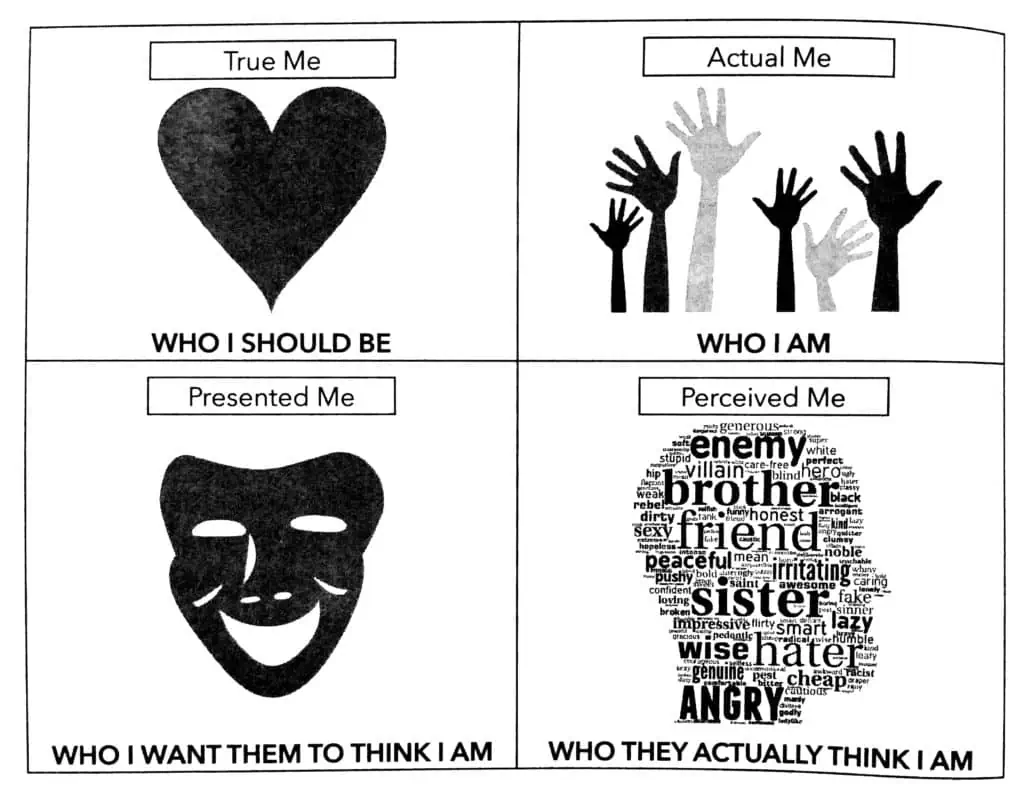
People live with a confused identity because they compartmentalize their lives. How they project themselves on social media or in public is totally different from whom they really are.
- Perceived me — “Who they think I am.”
- Presented me — “Who I want them to think I am.”
- True me — “Who I should be.”
- Actual me — “Who I am.”
As life-coaching fathers, we help our kids avoid identity confusion by teaching them how to live courageously in wholeness. Another word for wholeness is integrity.
It is the breaking down of barriers and uniting the segregated self to get their true unified identity.
Actual me + Presented me + Perceived me = True Unified Me.
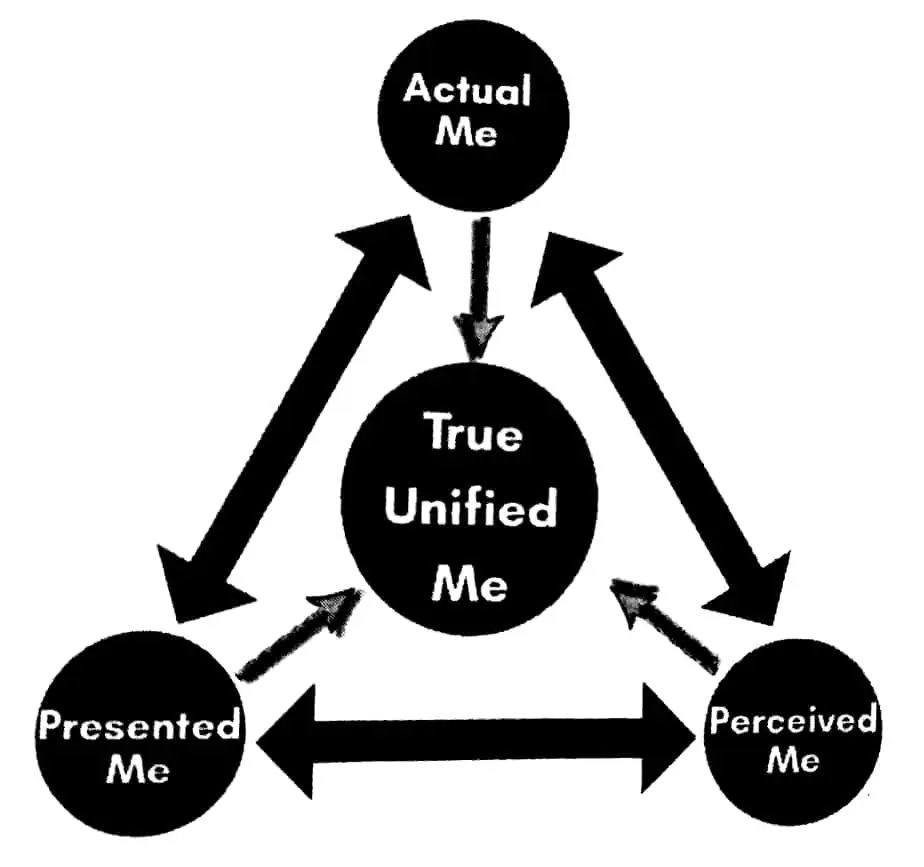
Children who have clarified their identities are more confident and make better decisions in life.
A father helps clarify the identity of his children by:
- Validating their gender identity — Girls should be validated for their femininity and boys for their masculinity.
- Holding only to the beneficial parts of their past and filtering the rest.
- Adopting the right values, forming relationships with the right friends, and making the right choices.
- Guiding and encouraging his children to remain steadfast on the path they have chosen.
Affirming Children’s Potential
A child’s self-worth is greatly influenced by his father’s affirmation. Our approval is vital to their well-being. What we say, or didn’t say, can literally change the course of their lives.
It is our duty as life-coaching fathers to:
- Discover what gifts our children have that society often ignores.
- Acknowledge the unique values and qualities our children carry.
- Be aware of our children’s social lifestyle and affirm accordingly.
We must learn how to use language to build our children up, and validate their potential.
Here is a crash course on affirmation from the One-Minute Manager by Ken Blanchard:
One minute affirmation
- Praise people immediately.
- Tell people what they did right — be specific.
- Tell people how good you feel about what they did right, and how it helps the organization and the other people who work there.
- Stop for a moment of silence to let them “feel” how good you feel.
- Encourage them to do more of the same.
- Shake hands (or touch people) to emphasize and clarify that you support their success.

Disciplines The Children
A life-coaching father must take the responsibility of keeping his children on the right track through discipline. We should serve (not boss over) them through the moral standard we have established. Children must take our discipline towards them as a benefit.
The Right Approach To Discipline: Authoritative (High Love + High Control)
Based on a case study, there are four kinds of parents when it comes to disciplining their children:
Permissive
This parent scores high on love but low on controlling his kids. What fuels them to this kind of “discipline” is fear. They are afraid their children might distance themselves from them because of discipline. This approach gives children too much freedom and a lack of direction. The result of being a permissive parent is an insecure or “spoiled” kid who wants things to go their way all the time.
Neglectful
It is a parent who scores low on love and low on control. This style of discipline centers on selfishness. They honestly should never have had a child in the first place. Neglectful parenting not only gives the child a lack of direction, but also a lack of intimacy. It results in a child feeling abandoned.
Authoritarian
These parents are high on control but low on love. It is an approach to discipline where the parent wants to be the boss. Children who are under this kind of rulership will feel their parents are “against me” and might harbor anger against them. Rebellious kids are oftentimes the result of authoritarian parenting.
Authoritative
This parent scores high on both love and control. Children with authoritative parents know the discipline they get is a product of love. They will see their mom or dad as someone who “journeys with me.” A parent who loves and controls celebrates the potential of their kids, yet at the same time, pushes them forward. This parenting style results in kids who are self-assured and resilient.
Meaningful discipline takes place when high levels of love and control work side by side. When both are held tightly and do not oppose each other.
10 Basic Rules Of Disciplining
- Understand the world of your child.
- Discern different temperaments.
- Stay connected with the child emotionally.
- Say “No!” only when it is necessary.
- Do discipline WITH your children, not TO your children.
- Never discipline out of anger.
- Only discipline disobedience and immoral actions, and as a safety precaution.
- Always give two warnings.
- Be super patient between 5 pm and 7 pm.
- Always debrief after disciplining.:
- Give the reason why.
- Re-affirm your love for the child.
- Re-state the rules.
Bonus: Teaches Children About Finance
This is not a part of the training. But I have a deep conviction about teaching our kids how to handle money.
Only 35% of adult males and 30% of females are financially literate, according to the Global Financial Literacy Survey.
It is mind-boggling how money can easily ruin our children’s lives, yet it is a subject not taught in school. Financial management is among the topics we must cover as a life-coaching dad.
6. Creating A Safe Environment For His Children
Fathers must create a safe environment for their children. It is a place where there is no fear.
This may mean a lot of things:
- Providing for their needs.
- Giving them an inheritance.
- Keeping them safe and protected.
- Etc.
But the no-fear environment we want to highlight is a place where our kids are safe to:
- Be transparent.
- Share their dreams.
- Commit mistakes.
The Father Is The Thermostat Of The House
Sad to say, but we have the tendency to strike fear into our children. A father’s emotional well-being determines the overall emotional climate at home. If your child can describe you with an emoji, which emoji do you think he or she would choose?
Our kids will not generally feel safe hanging out with us if our moods are always on the negative side.
As fathers, we must work on our emotional stability to create a secure atmosphere. We must get into the habit of practicing:
- Self-awareness — taking inventory of our strengths, weaknesses, feelings, and responses.
- Self-management — knowing how to handle our thoughts, behaviors, and emotions (consciously and productively).
- Social awareness — being sensitive to others.
- Relationship management — keeping good fellowship through effective communication.
7. Taking Care Of Himself
“Your life is not your own. If you want to protect the people you love, you must have the will to live.”
We think we are doing a great job as fathers if our foot is always on the gas pedal. We think fatherhood is all about sacrificing ourselves to give our families what they need.
But do you know what your family truly needs?
You.
Being involved in the lives of our children means we try to stay alive as long as possible.
Studies show, working long hours plus an unhealthy lifestyle can shorten our life span by up to 9 years.
- Data from the World Health Organization (WHO) showed countries with a high life expectancy of between 82.2 and 84.2 years work an average of 40.7 hours per week. In comparison, countries with an average workweek of 42.6 hours have lifespans of between 52.9 and 59.8.
- Working more than 40 hours a week can take off up to two years of your life. If employees were to work for 48 hours per week, their life expectancy could be shortened by almost 10 years overall.
- France has the lowest working hours with just 35 per week and boasts a long lifespan of 82.9 years.
So take some time to slow down and do not feel guilty about it. Eating right, getting enough rest, and enjoying life are part of our duties as fathers.
While this lesson holds gravity, it is actually not included in the training. You will chuckle when I tell you where I learned this one. It is from the movie Rurouni Kenshin: The Legend Ends.
8. Apologizing To His Children
Parenthood is an impossible task. Despite our best efforts, we will fall short in at least one aspect of our role — and this may lead to grave consequences on the lives of our children. It is a reality we must anticipate as a result of our own brokenness.
I know it is hard, but we should be ready to apologize to our children when necessary. It is a step we must humbly take to restore the damage we have done. Stepping from failure to restoration is part of our responsibility as fathers to maintain the fellowship we have with our kids.
Restoring Damage
1. Own the problem
- No blaming.
- No shaming.
- No justifying.
- No self-pity or victim mentality.
2. Confess
- Identify exactly what you are asking forgiveness for.
- Acknowledge where you fell short.
- Uncover the consequences of your actions that affected your child.
- Show empathy.
- Exhibit sincere commitment to making things right.
- Never demand to be forgiven.
- Propose on working together towards restoration.
3. Commit to restoration
- Reflect and learn from the mistake.
- Seek accountability with your wife.
- Trust the process by being patient and humble.
9. Forgiving The Grandparents Of His Children
When I say “grandparents,” it obviously means your mom and dad.
Let me piggyback from the previous point: parenthood is an impossible task. There is a high probability your parents have also done things in some areas of your life which have affected you negatively. These are called mother and father wounds.
The problem with these wounds is they do not heal by themselves. They need to be addressed or else it can go deeper and affect the way we parent our kids. Whatever we get from mom and dad has the tendency to be passed on to our children.
Check if you have any of these symptoms:
Mother Wounds
| Neglect of Giving Intimacy | Neglect of Nurture and Care | Neglect of Social Guidance | Neglect of Expression of Approval |
|---|---|---|---|
| I struggle with opening up emotionally. | I have serious bouts of fear. | I am ignorant of people’s details around me. | I struggle with supporting others. |
| I pull back when people come close to me. | I feel lonely in my pain. | I struggle to think and function in the world outside my own. | Playing supporting roles is not my cup of tea. |
| I feel lonely (as if I am on an island) | I do not need anyone to share my pain with. | I suck at connecting with other people emotionally. | I struggle with submission. |
| I always create a safe distance between myself and others. | I react with strong emotions when someone is not sensitive to my feelings. | I am slow to understand emotions. | I struggle to support causes apart from mine. |
| I am not comfortable with close relationships. | |||
| I often feel I do not belong. |
Father Wounds
| Moral Authority | Identity | Emotional Security | Affirmation |
|---|---|---|---|
| I do not have a clear understanding of what is right and wrong. | I struggle to fit in. | I feel like I do not deserve anything. | I feel useless. |
| I have no idea about leadership. | I am unaware of my unique purpose. | I want attention. Lots of it. | I am suspicious of every compliment I receive. |
| I am unaware of the law. | I am plagued by insecurities. | I support the underdog. | I always feel uncertain. |
| I struggle with delayed gratification. (I want it now!) | My work becomes my identity. | I am unsure about my feelings. | I always question myself. |
| It is difficult for me to follow rules or respect authorities. | I experience identity confusion. | I strive to earn love, respect, and acceptance. | I try to impress people all the time. |
| I want to do things my way. | I mask my real self. | I struggle with immaturity. | |
| I am aggressively defensive when criticized. |
Forgiveness is not a sign of weakness. On the contrary, it is a mark of strength and courage to go beyond the hurt and accept how we are all flawed individuals.
Our parents are as wounded as we. They need our forgiveness as much as we will need it from our kids in the future.
I am not sure which one is harder to do, apologizing to our kids or forgiving our parents. Yet, this is not an either-or question. Apology and forgiveness go hand in hand.
“Forgive, and you will be forgiven.”
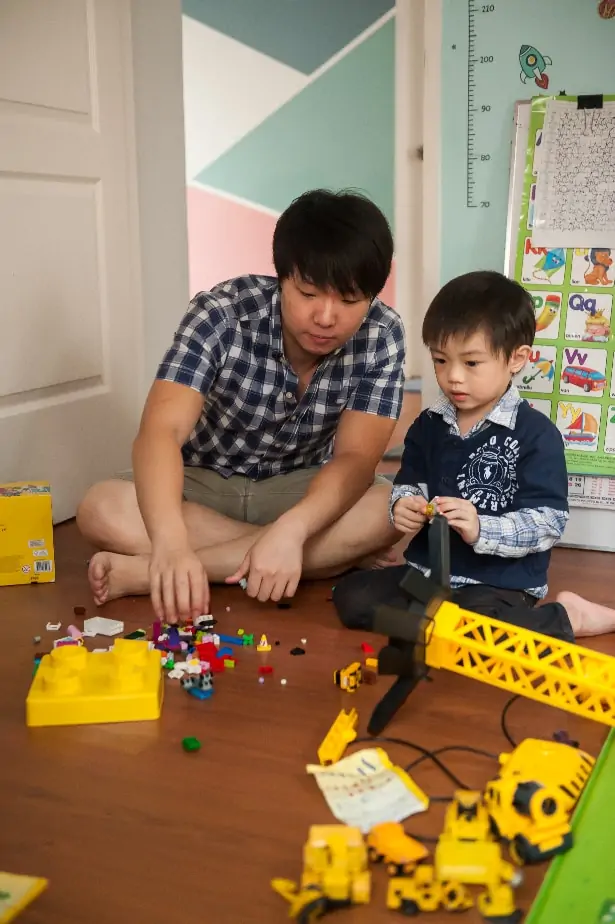
10. Learning Continuously
Parenting styles are changing, and it is changing fast. There are lots of contributing factors, but the most obvious one is the speed of information.
“Whenever I say something, they (children) need to verify it with Google first. Can you believe that?!”
A friend of mine shared.
Kids today believe more in what they find online than what their parents say. They are now too smart for their own good. The challenge for us fathers is to remain their source of authority by being reliable and trustworthy. We must maintain our status as their “influencer” until the time they are ready to face the world by themselves. This is the reason why our last and most crucial responsibility as dads is to continue learning.
Learning Sources
- Reading materials: Books, blogs, and workbooks.
- Seminars and workshops.
- Fellow fathers.
- Mentors (to learn from and be accountable to).
- Practicing communities.
If you haven’t noticed it yet, Learning is the main advocacy of this blog — hence the brand, The Learning Dad Blog. My intention is to keep myself accountable for growth, and hopefully equip other dads at the same time.
Here are a few of my recommended readings:
- The World Needs A Father by Cassie Carstens — You can also sign up for the two-hour FREE training in Udemy.
- The Five Love Languages of Children (and Teenagers) by Gary Chapman
- Be A Better Dad Today! — 10 Tools Every Father Needs by Gregory Slayton
- Boundaries by Dr. Henry Cloud & Dr. John Townsend
Closing Thoughts
I will keep this short and sweet.
If there is one thought I would like to leave you today, it is this: Take your role seriously.
Who you are as a father affects your children and the whole world.
A restored family restores society.
Resources
The information presented in this post is based on these two books:
- The World Needs A Father by Cassie Carstens
- Be A Better Dad Today! — Ten tools every father needs by Gregory W. Slayton

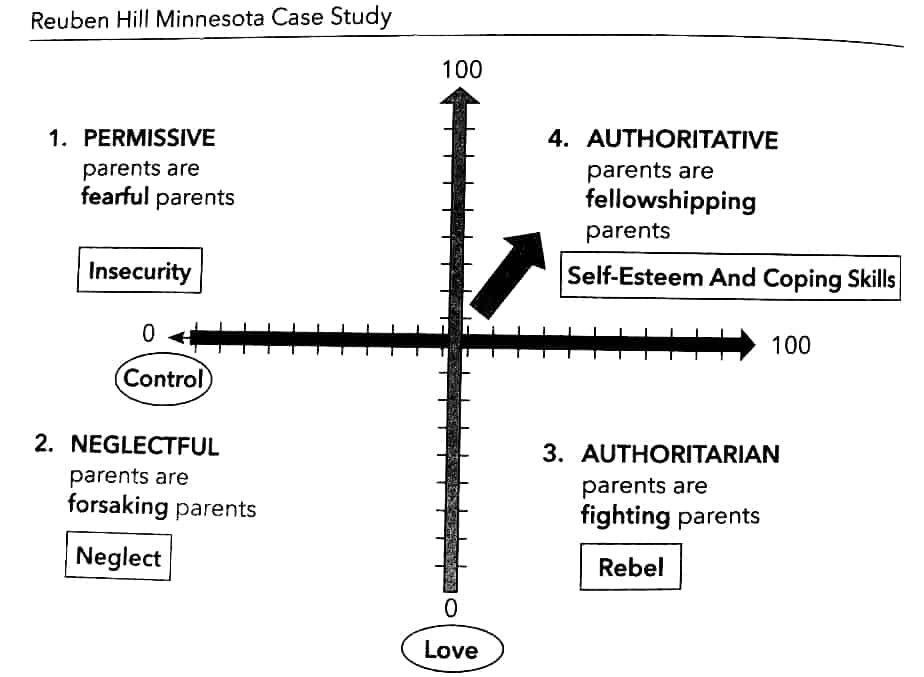
:max_bytes(150000):strip_icc()/emoticons-yuoak-56a709283df78cf772919acf.jpg)